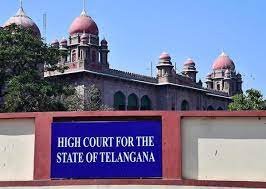The Supreme Court reaffirmed on March 21 that the Telangana administration should refrain from enforcing preventive detention orders mindlessly and disregarding rulings against it [Nenavath Bujji and others v. State of Telangana and others].
Along with Justices JB Pardiwala and Manoj Misra, the Chief Justice of India (CJI), DY Chandrachud, has stated that the State should take the Supreme Court’s earlier rulings on this matter seriously.
“The State of Telangana is the target of yet another lawsuit…It is our hope that the State of Telangana will take the rulings made by this Court seriously and ensure that preventative detention orders are not issued mindlessly and routinely. The top court said, “We hope that the State of Telangana does not give this Court any good reason to observe anything further once again.”
The observations were made in the process of overturning a preventative detention order that the Telangana High Court had affirmed after it was issued by the Rachakonda Police Commissioner.
The accused, who was considered a goonda (thug) involved in thefts detrimental to public order, filed a habeas corpus plea, but the High Court declined to consider it.
This resulted in the Supreme Court hearing an appeal.
The top court began by outlining that the executive’s contentment regarding the detainee’s propensity to act criminally, consistent with his prior actions, is the foundation for preventative detention and is expected to impact public order maintenance.
It was decided in this particular case that the detention’s justification was incorrect.It was not possible to base anything on the simple filing of the two FIRs for the purported crimes of robbery and other offenses. Preventive detention should not be used as a justification for using the state’s police apparatus’s incapacity to handle the situation of law and order.”
It noted that the detenu seemed, at first glance, to have been taken into custody by the police based on statements made during questioning.
The Advisory Board was also criticized by the Bench for its actions of rotely maintaining the detention order. It went into great detail about the significance of boards in the constitutional structure.
It is therefore even more crucial for advisory boards to act as a check on this arbitrary use of authority and to create a clear boundary that would allow for the immediate release of detainees and the early termination of unlawful detentions.need to properly and thoroughly examine a detention order that has been presented to it, taking into account all relevant factors before expressing a definitive view in its report,” the Court stated.
It was emphasized that the framers of the Constitution understood the harsh consequences of an order of preventative detention and how it would affect an individual’s right to privacy.
The legislature, in its wisdom, decided that the Advisory Board should be the only entity, not even the government, tasked with carrying out this vital task, which leads to the confirmation or revocation of a detention order.The highest court declared, “An Advisory Board is not a mere rubber-stamping authority for an order of preventive detention.”
The board was instructed to be forthright in presenting its findings in its report if it determines that an order of detention is not in accordance with established law or the spirit of the applicable laws.
As a result, the appeal against the High Court’s ruling was granted, and it was mandated that the accused be released right away.
On behalf of the Telangana Police, attorney Kumar Vaibhav appeared.
Attorney P Mohith Rao showed up for the detention
Consider our opinions carefully: Telangana is asked by the Supreme Court to forgo mechanical preventative detention.



